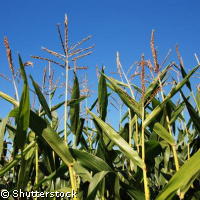European biotech industry criticises Dimas' position on new GM maize types
The European Federation of Biotechnology (EFB) has voiced its concern about Environment Commissioner Stavros Dimas' draft decisions to reject the authorisation of two types of genetically modified (GM) maize for cultivation. On 28 November, representatives of the organisation handed over an open letter to Mr Dimas' cabinet. In the letter, the EFB claims that the decision concerning maize types Bt-11 and 1507, developed by Swiss biotech company Syngenta and Pioneer Hi-Bred International respectively, was 'based on discredited scientific arguments that have not been reviewed by your own independent scientific body'. In addition, the EFB alleges that the decision had taken into consideration neither the consequences for Europe - the marginalisation of science in Europe, the discrediting of the European Food Safety Authority and the collapse of the EU livestock industry - nor 'the fact that similar varieties have been growing in Europe for the past nine years with high adoption rates with no adverse environmental effects and in coexistence with conventional and organic farming'. 'The draft Commission decisions are totally unacceptable, not only for European farmers and consumers, but also set a terrible example for other parts of the world that presently draft guidelines for the cultivation of GM crops, since they look to Europe as an example,' writes Professor Marc van Montagu, one of the pioneers of plant biotechnology, on behalf of the EFB, referring mainly to developing countries. 'Other GM strains of maize are under development that will have enhanced nutritional quality or tolerance to drought, and must be given the chance to reach those who need them the most.' According to the draft decisions, however, there was too much uncertainty that growing the crops would hurt the environment. 'The possible existence of delayed or long-term effects on the environment and biodiversity which may not be observed during the period of release of the GMO but become apparent at a later stage are still unknown,' the draft decision on maize 1507 states. 'It is assessed that the degree of uncertainty attached to the results of the evaluation of the available scientific information is high, and that the level of risk generated by the cultivation of this product for the environment is unacceptable.' Environmental group Greenpeace welcomed the draft decisions, pointing out that 'recent research has shown that toxin-producing GM plants can have a range of unexpected effects, from harming beneficial insects to contaminating streams and poisoning aquatic life.' In order to add some weight to their position, Greenpeace activists on Wednesday staged a parody protest outside the European Commission's Berlaymont headquarters. 'Behind our parody is a serious call for greater transparency,' Marco Contiero of Greenpeace explained. 'We are protesting about the disproportionate influence of the GMO [Genetically Modified Organisms] industry in certain Commission departments. Industry lobby groups such as the European Federation of Biotechnology (EFB) and EuropaBio, which represent the interests of agrochemical companies, have 'excellent working relations' with the Commission. We call on the European Commission to stop listening to the powerful biotech lobby and support Commissioner Dimas' call to refuse authorisation for the two pesticide-producing GM maize.' To date, the only GM crops approved for planting in the EU are varieties of Bt maize, which is resistant to the corn borer - a moth larva that eats the plant's stem and ear, boring holes in the process that clear the way for potentially toxic fungi to spread. Bt corn has had its genome modified to include a gene from the Bacillus thuringiensis so that it produces a toxin which affects the corn borer. Eight countries in Europe currently allow the cultivation of Bt maize. According to recent figures published by the European biotech industry organisation EuropaBio, the area planted with these crops increased by a massive 77% in the past 12 months. The European Commissioners are expected to vote on Mr Dimas' proposals in the coming days.

